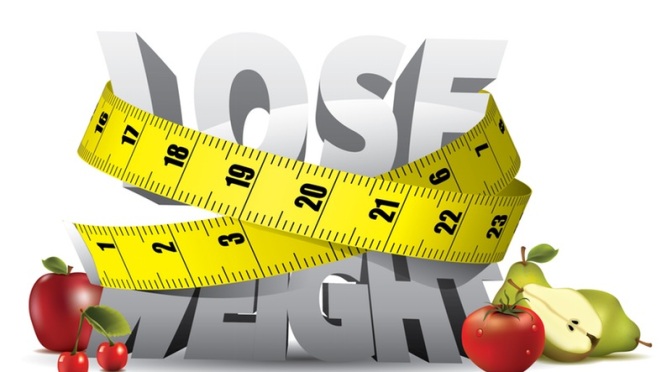Yes, It’s that simple
In my local town to often I get ask, “Hey Dusty, What’s the secret to weight loss? What do I gotta do to shed some weight?” or something similar. I live in a small town, where health and fitness is a bit behind the normal pace of things I would say. Anyway, if they are a ‘beginner’ which is 90% of the time, I always tell them the same thing. It’s not a new diet pill or the latest crash diet so no quick fix unfortunately, sorry. Water, Protein, Fiber, I say to them. Usually, I get met with, “Well, I drink plenty of water!” which usually after talking we find that they typically don’t drink nearly as much as they think, and that’s not even getting to the other two topics. I have found that before any type of diet begins, pills bought, or crazy workout regiment started, if you simply focus on improving your WATER, PROTEIN, and FIBER intake, you can drastically improve your health and body composition.

Water
“Think of water as a nutrient your body needs that is present in liquids, plain water, and foods. All of these are essential daily to replace the large amounts of water lost each day,” – Joan Koelemay, RD.
Now, I know you might be thinking that this is a no brainer, but I will be honest with you, I know more people personally that actually drink very little water. You get busy working, next thing you know 6 hours in and you haven’t had a drop, and many friends I have, especially shift workers will quick reach for a energy drink or coffee to help keep them stimulated verse a water to re hydrate. I’ve gotten more comments about carrying around a gallon jug of water, as it’s the typical bro stereotype, but I will be honest I think they got it right there. The gallon jug gives a not only a visual aid on exactly how much I’ve drank, but also a friendly reminder not to forget to drink some high quality H2O.
Now, the Food and Nutrition Board recommend women to get 91 ounces per day and men 125 ounces from all sources — water, other beverages, and foods with a high water content. I think that is a great place to start, but the problem with that is it doesn’t take into account lifestyle or body composition. That number especially goes up if you decide to add exercise into your arsenal as you will be then losing more water throughout the day, and will want to fight off dehydration. Also, don’t wait till you find yourself thirsty, as that can be a good sign that dehydration is setting in.
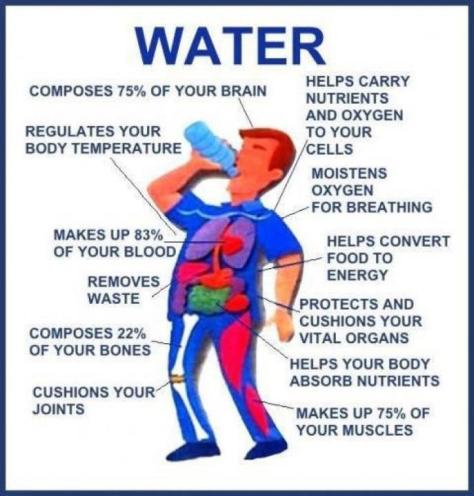
Before we even get into the fantastic diet support water gives, let’s just quick talk the plain ole health benefits it has. Dehydration is easily the first thing that comes to mind with water consumption. Studies have shown that as little as 1-3% mild dehydration can have a impact on energy levels, mood, and brain function. (1) They also show that as little as a 2% reduction can have a negative impact on physical performance. (2) If you are any kind of laborer, someone that needs sharp mind to complete work, or need to perform with physical demand you can see how important simple hydration should be. Drinking more water can also help with constipation (3), headaches (4), hangovers (5), and more!
Water takes up space, plain and simple. So the most basic diet support that water is giving you is a filler. Remember when you were younger and loved any and all the soda you could get? Going to buffets or fast food with refills and slamming 2 glasses before the food got to the table. Next thing you know you’re half way into your Big Mac and realize your stuffed? That’s the power of liquid, so use that to your advantage. There was a 12 week study done were subjects consumed 16 oz of water 30 minutes before 3 meals a day and lost on average 9.5 pounds more compared to the no water pre meal group. (6) That is huge! Simply what that means is consumption of water before eating, should hopefully lead to on average less calories consumed each meal. That reduction of calories in each meal alone will trigger weight loss since the body has now entered a caloric deficit.
Getting water through food is a fantastic way to increase overall water consumption as well as the majority of high yield water foods are great for you! With nearly 1/3 of our water consumption coming from out diet, fruits and vegetables rank highest as the best options to look into. Cucumbers, lettuce, courgettes, and radishes all come in at 95% water or higher. If you read my other article Eat more Food, Lose more weight! Save calories while dieting! you will also know that those foods are all low macro nutrient foods so you can eat large quantities of those. One study, by researchers at the University of Aberdeen Medical School, found that the natural sugars, proteins, mineral salts and vitamins in water-rich fruits and vegetables means they also supplement the nutrients lost through exercise. (7)
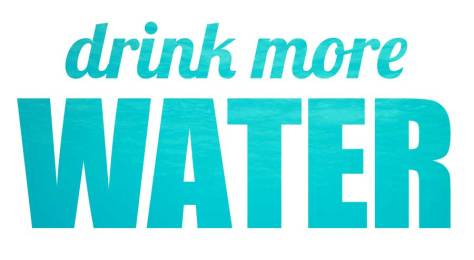
Protein
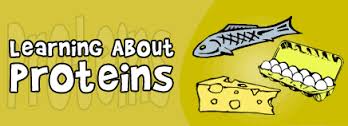
Chicken, fish, beef, tofu, whey, or it doesn’t matter the source just eat more of it, to a point! The DRI (Dietary Reference Intake) is 0.8 grams of protein per kilogram of body weight, or 0.36 grams per pound. This amounts to: 56 grams per day for the average sedentary man. 46 grams per day for the average sedentary woman. In 2014 a survey found that American men eat an average of 100 grams of protein a day, which is almost twice the recommended daily intake for males. Women eat a bit less – about 70 grams of protein a day, or one and a half time the recommended intake for females. Both of which are higher than the DRI recommended amounts, but is it enough?
The Academy of Nutrition and Dietetics, Dietitians of Canada and the American College of Sports Medicine recommend 1.2 to 2.0 grams of protein per kilogram of body weight per day for athletes, depending on training. Now the needs of a athlete and just someone trying to improve their diet are slightly different, but protein none the less is still a very important aspect to consider. Protein consumed evenly, spread out over the course of the day sets you up for the best success in muscle growth, but for overall body composition it seems as long as you get your protein numbers for the day you will be fine. In one study done for natural bodybuilders, research showed for active individuals, 1.2-2.2 g/kg is sufficient to allow adaptations from training. These conditions will change depending on levels of body fat, and energy expenditure. (8)
![]()
It also has been shown that a diet higher in protein can also lead to a better retention to LBM(lean body mass), to build on that the leaner the individual is, the higher the potential requirements for protein. (9) Diets higher in protein have been proven to result in greater weight loss, greater fat loss, and again, preservation of lean body mass. (10) Increased protein is also going to help fight off hunger cravings by increasing levels of satiety inducing hormones while reducing hunger hormones, aka get fuller faster.(11) Heck, even digesting protein burns more calories! TEF or thermic effects of food is the cause of this. The body expends 20-30% more calories digesting protein compared to carbs (5-10%) and fat (1-3%). (12) To build on that, a diet with high protein intake has been shown to burn 80-100 calories more per day. (13)
Consuming adequate amounts of protein not only is good for body composition but is also an important building block for bones, muscles, cartilage, hair, nails, skin, making enzymes, and hormones. It also helps to stabilize blood sugar, reduce brain fog, and boost energy levels. (14)
Overall increased diet in protein is going to give the body a whole host of benefits from improved energy, better metabolism, and increased satiety. That’s going to help get you moving, losing weight, and help prevent over eating and snacking!
Some great protein sources would be:
Meat:
- Chicken, lean Beef, Pork, Turkey
Fish
- Salmon, Shrimp, Tilapia, Sardines, Tuna,
Eggs
Dairy
- Greek Yogurt, Milk, Cheese
Legumes
- Chickpeas, Black Beans, Kidney Beans
Grains
- Quinoa, Oats, rice bran
Fiber
I think fiber is one of the most overlooked, underrated aspect of nutrition and dieting. Fiber can play a HUGE roll when trying to lose weight. If you are wondering what fiber even is, it’s carbohydrates that cannot be digested. You have Insoluble fiber which act mainly as bulking or binding agents, and soluble fibers can help have an affect on health and metabolism. A recent study showed people who added fiber into their diets and changed nothing else, lost just as much weight as people following a heart healthy, low fat eating plan by the American Heart Association. (15) That study added to a growing body of evidence that people who eat more fiber tend to have healthier body weight.
Thankfully, typically high fiber foods are typically very healthy low calorie foods such as fruits, vegetables, and whole grains. Some high fiber foods to look out for would be:
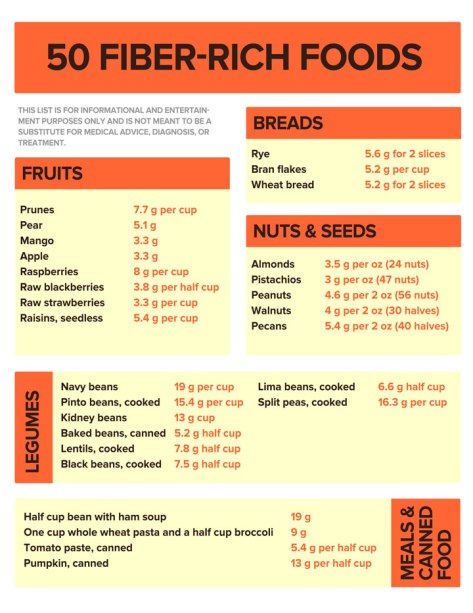
Without going into detail, soluble fiber is fantastic for maintaining overall gut health. The gut has good bacteria in it, and supplying it with soluble fiber helps kick in the prebiotic effect which is believed to be very beneficial for health and body weight. (16) (17) We also know when dieting that calories are low and hunger can set in quick! Fiber is going to help aid in fending off those hunger cravings just a bit longer. Fibers with high viscosity have been shown to increase satiety, reduce appetite, and cause weight loss. (18)
After all of that you’re probably wondering how much fiber you should be eating I bet. The national fiber recommendations are 30-38 grams of fiber for men and 25 grams a day for women. I personally think if you are consuming at least 10 grams of fiber per 1000 calories then you should be fine. If your diet is focusing on micro nutrient rich foods, then you should have no problem hitting those guidelines.
All it takes is small adjustments
As you can see it doesn’t really take much to get yourself on the right path towards your health and fitness goals. Following these 3 steps, and using them as tools can dramatically change your body composition and lifestyle without making you over haul your kitchen, commit to a drastic diet change, or get completely flustered with information that you don’t do anything! These are things you already eat everyday so it’s just focusing on improving the quality and consumption of water, protein, and fiber. Once you master those aspects, odds of setting yourself up for diet success will be highly improved.
Here are a few pages you might like!
Eat more Food, Lose more weight! Save calories while dieting!
Walden Farms Top 5!
High Protein Chocolate Mousse
MuscleTech Banana Bliss!

